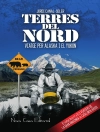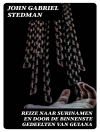In ‘To Cuba and Back, ‘ Richard Henry Dana presents a vivid and insightful memoir chronicling his journey to Cuba and the socio-economic dynamics he encountered. Written in the mid-19th century, Dana employs a narrative style that seamlessly blends personal reflection with astute observations on culture, commerce, and the stark contrasts between American and Caribbean life. His articulate prose not only captures the beauty of the Cuban landscape but also critiques the complexities of colonial exploitation, making it a significant contribution to travel literature of the era. Richard Henry Dana, an esteemed American author and social reformer, drew upon his own experiences as a sailor to shape this narrative. His earlier work, ‘Two Years Before the Mast, ‘ established him as a keen observer of life at sea, instilling a deep awareness of maritime culture and labor conditions. His travels, influenced by a growing interest in abolitionism and social justice, inspired him to explore the implications of U.S. expansionism, contributing to the themes of this book. ‘To Cuba and Back’ is highly recommended for readers interested in 19th-century American literature, travel narratives, and the socio-political context surrounding colonialism. Dana’s discerning observations and eloquent writing will captivate historians, literary scholars, and casual readers alike.
Over de auteur
Richard Henry Dana Jr. (1815–1882) was an eminent American lawyer, politician, and author best known for his classic maritime memoir ‘Two Years Before the Mast’ (1840), which detailed his experiences as a common sailor on a voyage from Boston to the California coast. Born into a privileged family in Cambridge, Massachusetts, Dana defied the expectations of his social class by choosing to become a sailor after health issues interrupted his studies at Harvard College. Dana’s literary works, including ‘To Cuba and Back’ (1859), a journal of his trip to Cuba, reflect his empathetic engagement with the diverse social realities of his time. This travel diary provides insightful observations of Cuban life, culture, and politics during a short visit in the 19th century. Dana’s works often reveal his reformist spirit, especially his concern for the underprivileged and downtrodden, such as the sailors and slaves he encountered on his journeys. His prose has been characterized as vivid and articulate, typically focused on social and political issues. Dana’s contributions to American literature and his advocacy for seamen’s rights have cemented his legacy as a significant figure in both the literary and legal spheres of the 19th century.












